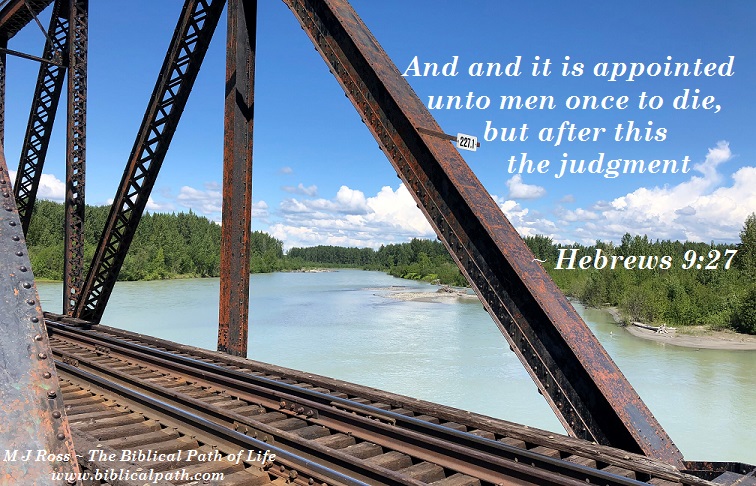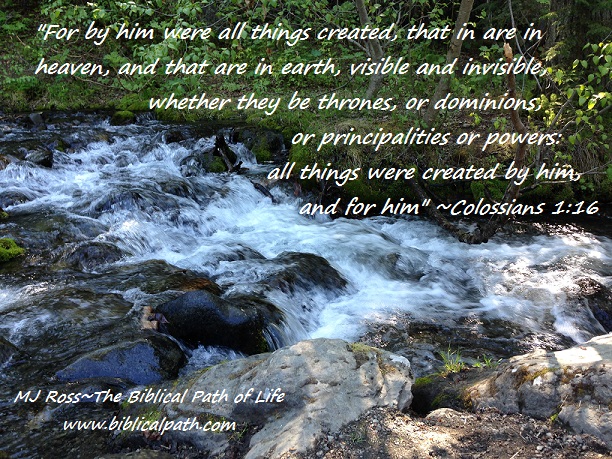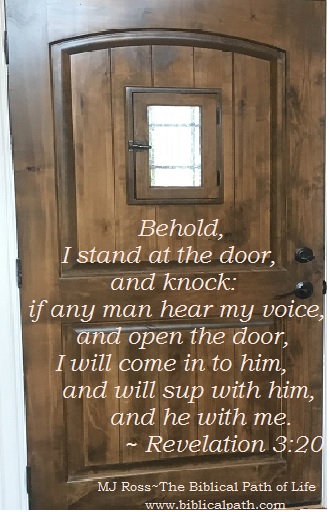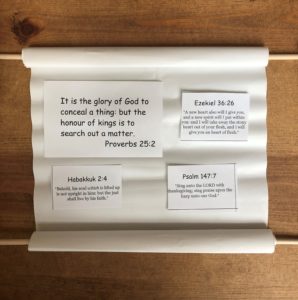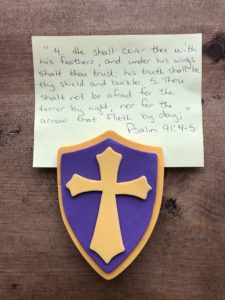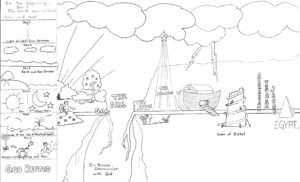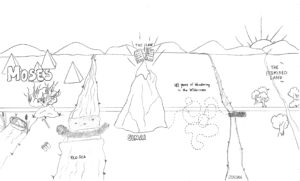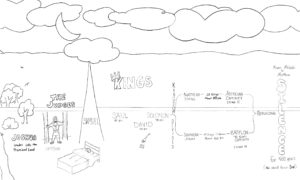
Ephesians 4:18
A religious practice had so engrained itself into the Israelites during the New Testament times that the people no longer realized they were to look for their Messiah: for their hearts had become hardened. When Jesus came and died to set them free from their religious system, restoring the relationship with God, they rejected Him. The religious Jews had their understanding darkened – they just did not get it. See this explained in the following verse. “Having the understanding darkened, being alienated from the life of God through the ignorance that is in them, because of the blindness of their heart” (Ephesians 4:18). Blindness means “callousness or hardness.” Paul was a Pharisee, a part of that religious system. He had been instructed in the Old Testament, and declared that, “after the most straitest sect of our religion I lived a Pharisee” (Acts 26:5). He not only knew the Old Testament Scriptures, but he lived by them. He was very religious. However, when Jesus called him, Paul listened to, and obeyed, that call. It was then that Paul understood that he had been living in darkness. He saw the Light, Jesus, and believed. He then had a great burden to tell the religious, Jewish people who were living in darkness and help them understand that Jesus was the only way to remove the “blindness of their heart.” Paul became a missionary in the New Testament times, wanting to declare the truth of Jesus to those religious, Jewish people. When he entered a city, he migrated toward the Jews and their Synagogues where he taught them Jesus from their Old Testament Scriptures. Some believed, but overall the Jewish people rejected the message. So much so that many times these religious Jews tried to kill Paul. When Paul was rejected repeatedly, he declared that he would take the Gospel message to the Gentiles “Be it known therefore unto you, that the salvation of God is sent unto the Gentiles, and that they will hear it” (Acts 28:28). There was a dynamic shift.
The Gentiles have predominately received the Gospel Message since that time. However, one cannot help but recognize that today, not many Gentile people are willing to receive the Gospel Message of Jesus. One can understand that there is a sort of darkness that has come upon the world as a religious system of “Christianity” has taken precedence within the world today. Many who claim the name of “Christian” today have a religion, not a relationship with Jesus Christ. Paul could see this happening in the newly established church in his day. “Having the understanding darkened, being alienated from the life of God through the ignorance that is in them, because of the blindness of their heart” (Ephesians 4:18). Blindness means “callousness or hardness.” Just as the Jews had their religious system, many churches have established their own “religious system.” This leads to people believing in a “church” or “religious acts” (such as baptism, attending church, doing good deeds, loving others, or a recognition of God, etc.). Above all, one must actually hear the call of repentance of sin (repent means “to think differently; a change of mind demanding a change of action”), and then turn to Jesus who is the “Salvation of God” (Acts 28:28). One’s heart must be enlightened by the Light, Jesus: “Then spake Jesus again unto them, saying, I am the light of the world: he that followeth me shall not walk in darkness, but shall have the light of life” (John 8:12).
How can one’sheart be enlightened today? “8. But what saith it? The word is nigh thee, even in thy mouth, and in thy heart: that is, the word of faith, which we preach; 9. That if thou shalt confess with thy mouth the Lord Jesus, and shalt believe in thine heart that God hath raised him from the dead, thou shalt be saved. 10. For with the heart man believeth unto righteousness; and with the mouth confession is made unto salvation” (Romans 10:8-10). One must have a personal, life-changing encounter with Jesus. Without Jesus, one has a religion. A religion is a cheap copy of the real thing. It would be a tragedy for anyone to have attended church, followed the religious instructions of what to do to live as a “Christian,” yet to never really know what a true Christian life is. Paul recognized that many Jews in his day had a religion. He then understood what Isaiah had written and quoted it. “26. Saying, Go unto this people, and say, Hearing ye shall hear, and shall not understand; and seeing ye shall see, and not perceive: 27. For the heart of this people is waxed gross, and their ears are dull of hearing, and their eyes have they closed; lest they should see with their eyes, and hear with their ears, and understand with their heart, and should be converted, and I should heal them” (Acts 28:26-27).
Have we come full circle? Do the people today hear, and not understand? Do they see, yet not perceive? Have the hearts of the people “waxed gross” and become “dull of hearing?” Have the religious people in the churches today closed their eyes, lest they be converted? Why has this happened? “In whom the god of this world hath blinded the minds of them which believe not, lest the light of the glorious gospel of Christ, who is the image of God, should shine unto them” (2 Corinthians 4:4). Without a change of heart that receives Jesus, one cannot become a true Christian.
Do you have a religion?
Or
Have you believed in your heart unto righteousness, confessing Jesus, establishing a relationship?
